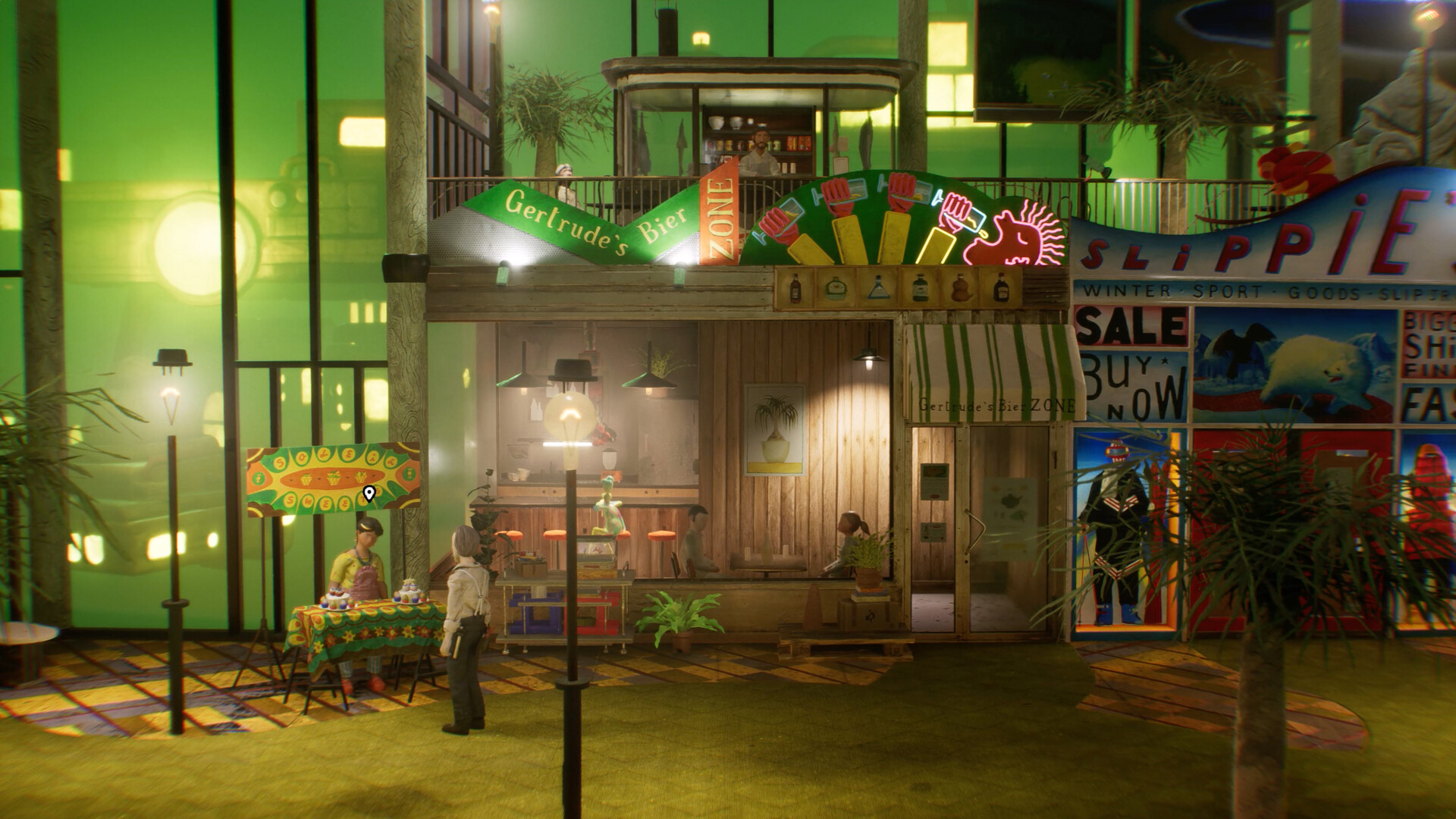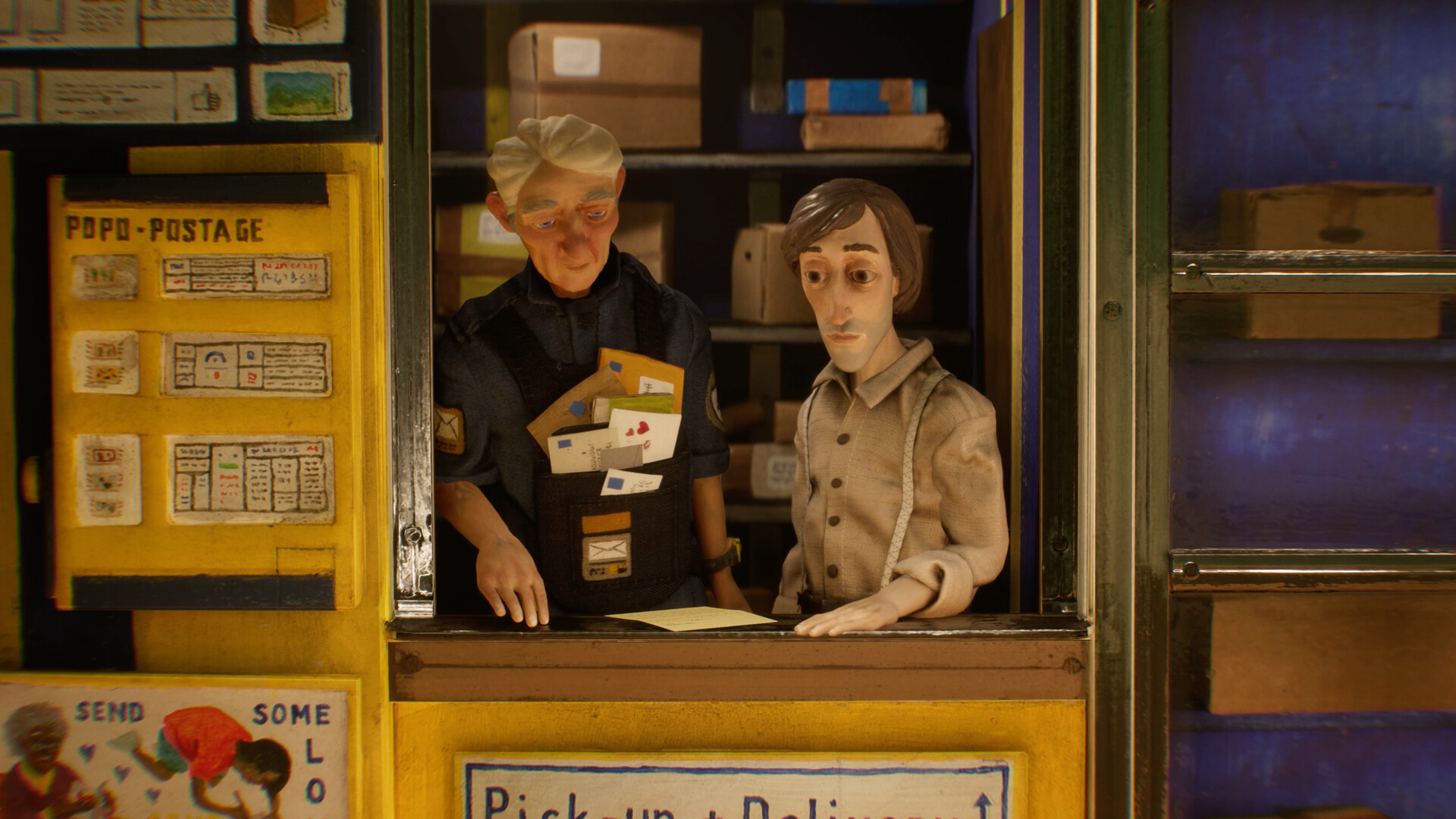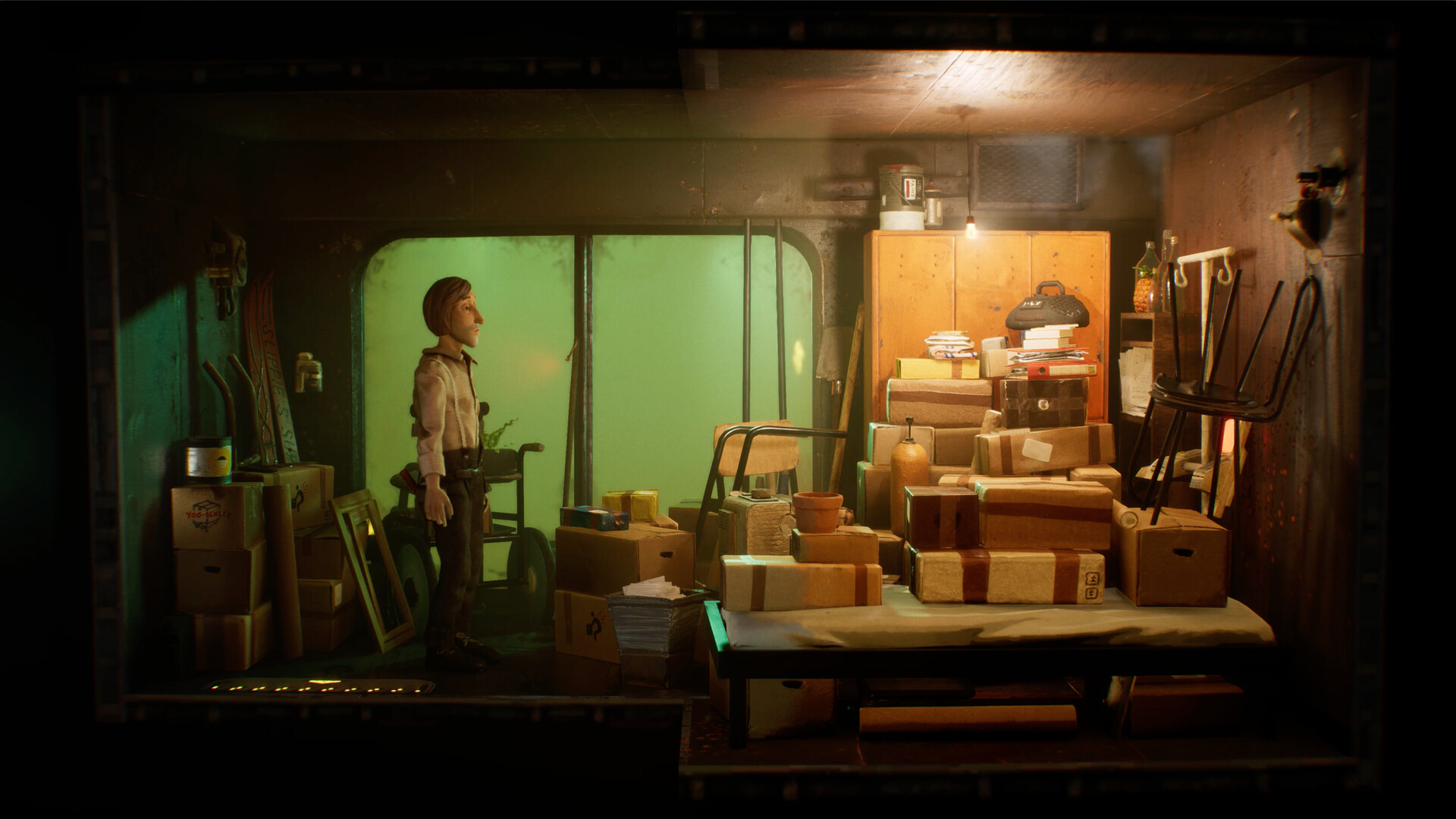GamesRadar+ Verdict
Harold Halibut's sunken spaceship adventure on an alien planet is a stop-motion-style delight filled with meticulously crafted models and surprisingly moving writing, but awkward controls and occasionally clunky animations mar an otherwise excellent title.
Pros
- +
Charming, handmade models
- +
Compelling and humorous sci-fi narrative
- +
Surprisingly poignant writing
Cons
- -
Somewhat clunky controls
- -
Occasionally awkward animations
- -
Lots of walking back and forth
Why you can trust GamesRadar+
I've never played a game quite like Harold Halibut, and I suspect I might never do so again. That's not because I'll be going out of my way to avoid similar titles in the future, mind you, but simply because the Slow Bros.-developed narrative adventure game occupies a singular column and row all its own among the vast variety of games I've had the pleasure of playing over the past three decades and change of my life. For sheer novelty alone, you'd be doing yourself a disservice to not at least try Harold Halibut.
Release date: April 16, 2024
Platform(s): PC, PS5, Xbox Series X
Developer: In-house
Publisher: Slow Bros.
The name of the game is also shared by its protagonist, who is something like a lab assistant/plumber/handyman aboard the FEDORA I, a spaceship that fled Earth 250 years ago in order to find somewhere else for humanity to settle down. At some point in the past, this ship unintentionally sank into an alien ocean and has been unable to leave. But Jeanne Mareaux, the ship's chief scientist and Harold's boss, has continued to work towards leaving said ocean behind, and some surprising new events just might make all the difference.
Getting Physical

But the real draw of Harold Halibut, at least at first blush, is its handcrafted visuals. According to the developers, every element of the game is tactile and handcrafted. That means they made a whole bunch of physical sets and models and sets before cobbling it all together into a digital version that players can wander through. You might think, "Goodness, that sounds like it would take an extremely long time to achieve." As it turns out, you'd think right; Harold Halibut was initially conceived of all the way back in 2012, and the road to release has been a decade and then some.
This gives every single aspect of Harold Halibut a real tangible edge to it. All the little props and characters and places have physical counterparts, even if maybe the models were scanned to allow for movement in ways that traditional stop-motion filming might not allow – interactivity in games makes things a little tricky, after all. Even the most miniscule detail has a certain meticulousness about it that makes the whole experience that much more compelling. I like to imagine this is the big reason there's a dedicated zoom button while Harold is wandering around, simply so players can really stop for a moment and try to get a better look at the silly gibberish on the wall or the texture of a door.

"The handcrafted, stop-motion look and feel to this world makes every imperfection just another lovely detail"
The physicality of Harold Halibut does seem to cause some unintended problems with geometry and collisions, unfortunately. Certain animations are slightly awkward at times with limbs bending in unnatural ways or doors swinging wildly, and anyone that pays too much attention to the way Harold navigates stairs is going to have a bad time. This is exacerbated by running, which every player will likely want to do as Harold moves too slowly otherwise, and more than once I found myself accidentally clipping through a bed or other part of the set as I overshot an activation spot and tried to engage it at the same time.
Aside from the occasional animation issue, and one particularly troublesome bug that prevented me from interacting with a character during a specific chapter without the game becoming unresponsive, Harold Halibut was technically smooth sailing. There's a lot of moving back and forth between various districts on the FEDORA I, and interacting with a wide range of objects and minigames like odd recreations of fictional arcade games, navigating an RC car with a camera attached to it through vents, and so on. And beyond a few hiccups, it all worked just fine.
Handmade Feelings

Given this is a narrative adventure game at heart with relatively few overall puzzles and choices, I'm loath to spoil anything in this review beyond the fact that I found the writing surprisingly poignant at times. I'd come in expecting Harold Halibut to be unusual and funny, and the writing certainly is those things, but I'd not actually expected it to be moving. More than once, I found myself deep in my feelings about a conversation Harold was having – or even a song he was singing. Few games have managed to invoke that in me like Harold Halibut has.
There's an argument to be made that, perhaps, there's too much walking around FEDORA I. I'd maybe suggest that walking around is the point, and it encourages engaging with characters that aren't necessarily part of the critical path. (Be sure to catch up with the postmaster, by the by. Just trust me.) But the controls are clunky and movement is awkward, and more than once I found myself unintentionally hung up on a corner while trying to move through a doorway. It's easy to imagine someone less enamored with Harold Halibut's whole vibe finding these things immensely frustrating.
Harold Halibut is destined to draw strong positive and strong negative reactions out of its players. There's really no middle ground here; Harold Halibut's visual conceit either really works on you, or it does not. If you find the handcrafted aesthetic displeasing or even simply neutral, the clever dialogue isn't going to be enough, but if you're as charmed as I am by the former, the latter only serves to sweeten the deal.
Harold Halibut is beautifully messy. The handcrafted, stop-motion look and feel to its world makes every imperfection just another lovely detail. In some ways, I extend that feeling to the rest of the game's design, which simply adds what is perhaps a more forgiving layer than most might. A game doesn't need to be perfect in order to be uniquely compelling. Harold Halibut certainly isn't, and yet I would happily recommend it to anyone that'd listen.
Harold Halibut was reviewed on PC, with code provided by the publisher.
More info
| Genre | Adventure |

Rollin is the US Managing Editor at GamesRadar+. With over 16 years of online journalism experience, Rollin has helped provide coverage of gaming and entertainment for brands like IGN, Inverse, ComicBook.com, and more. While he has approximate knowledge of many things, his work often has a focus on RPGs and animation in addition to franchises like Pokemon and Dragon Age. In his spare time, Rollin likes to import Valkyria Chronicles merch and watch anime.



